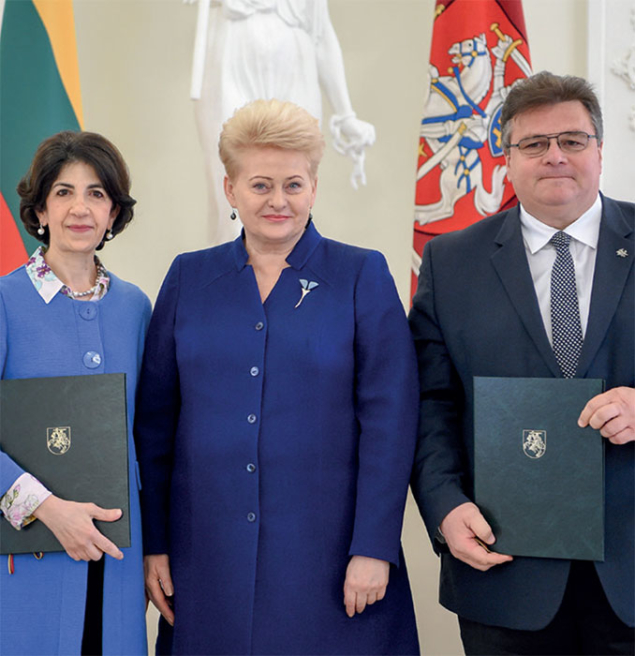
Image credit: R Dačkus.
On 27 June, representatives of CERN and the Republic of Lithuania signed an agreement in the capital city of Vilnius admitting Lithuania as an associate Member State. The agreement will enter into force once official approval is received from the Lithuanian government.
“The involvement of Lithuanian scientists at CERN has been growing steadily over the past decade, and associate membership can now serve as a catalyst to further strengthen particle physics and fundamental research in the country,” said CERNʼs Director-General, Fabiola Gianotti. “We warmly welcome Lithuania to the CERN family, and look forward to enhancing our partnership in science, technology development and education and training.”
Lithuania’s relationship with CERN dates back to a co-operation agreement signed in 2004, which paved the way to participation of Lithuanian universities and scientific institutions in high-energy physics experiments at CERN. Lithuania has been a long-time contributor to the CMS experiment and has also played an important role in developing databases for the experiment. The country actively promoted the BalticGrid in 2005, and more generally participates in detector development relevant to the High Luminosity LHC.
Lithuania’s associate membership will strengthen the long-term partnership between CERN and the Lithuanian scientific community. It will allow Lithuania to take part in meetings of CERN Council and its committees, and Lithuanian scientists will be eligible for staff appointments. Finally, once the agreement enters into force, Lithuanian industry will be entitled to bid for CERN contracts.








